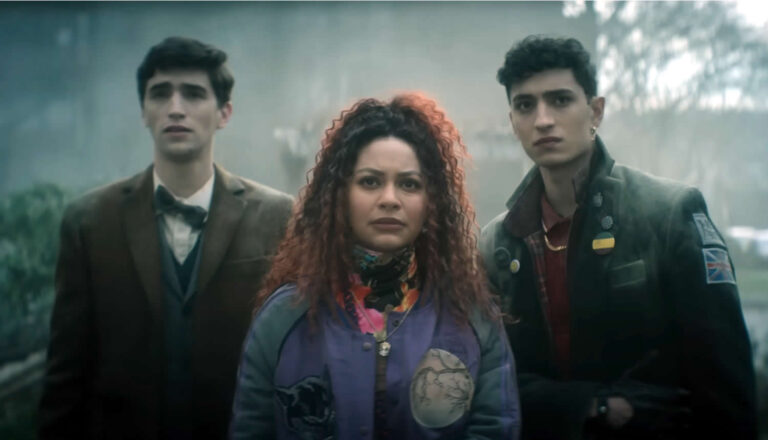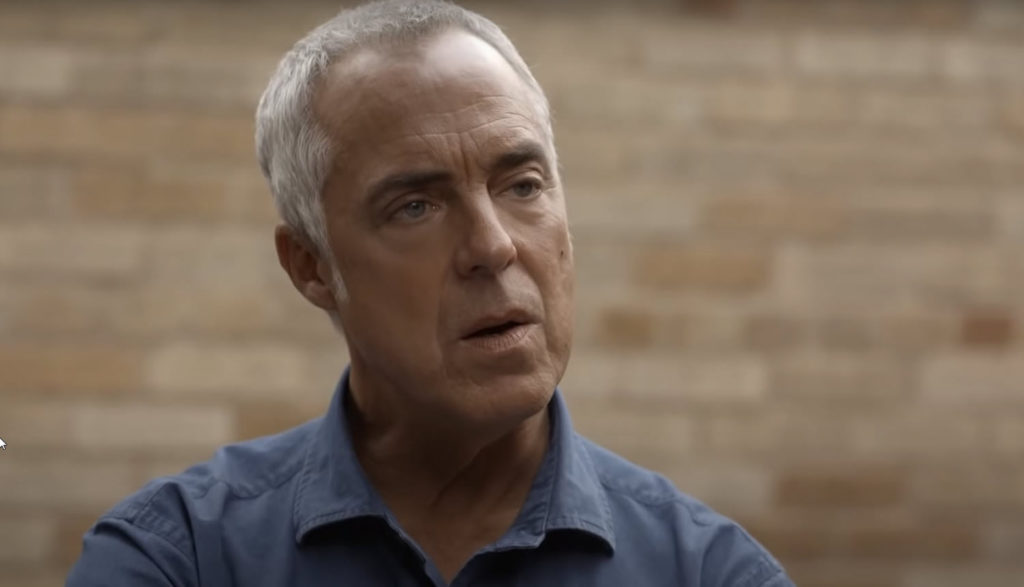
Dead Boy Detectives
Dead Boy Detectives targets teens in style and story. But it comes with very adult, problematic content.

Nashville has its country singers, New York its stock brokers, D.C. its politicians.
And Los Angeles? It boasts more detectives per square mile than anyplace on Earth—or so you’d assume from the movies and TV shows we watch. From Philip Marlowe to J.J. Gittes, from Lt. Columbo to Sgt. Joe Friday, plenty of gumshoes have pounded the city’s pavement over the years—so many, in fact, you’d think that criminals would’ve left the City of Angels for good.
But they didn’t. And now they have to face another grizzled L.A. do-gooder sporting a badge, carrying a gun and, sometimes, bearing a grudge: Bosch.
For Det. Harry Bosch, Los Angeles’ toughest streets hold little fear. He’s a veteran of the first Gulf War. He served in Afghanistan in the wake of 9/11, too. After a military career of clearing tunnels and fighting terrorists, he’s not going to back down from your average L.A. crack dealer.
The challenge here isn’t physical; it’s mental—and maybe emotional, too. Working the homicide beat with partner Jerry Edgar, Bosch peers into the human heart’s darkest corners, uncovering unspeakable secrets and doing his best to address unrightable wrongs. He confesses to his daughter in Season 7 that he keeps the pictures of three women at his desk—all unidentified murder victims, their bodies unclaimed, their spirits apparently unmourned. Daughter Maddie has just one question for him. Why?
“To remind me,” he tells her. “Everybody counts or nobody counts.”
Those reminders are important out there, where the lines between right and wrong can feel blurred and twisted; where politics can make their pressure felt; where the biggest evildoer isn’t always the one with the gun, but the one with the checkbook.
Bosch, now in its seventh and reportedly last season, is based on the books of Michael Connelly. So far, he’s written 21 novels centered on the character, whose full name—Hieronymus Bosch—is telling.
The first Hieronymus Bosch was a famous Dutch painter perhaps best known for his fantastically grotesque work, especially his three-paneled painting The Garden of Earthly Delights. Though ostensibly a theological rumination on sin and judgement (the first panel represents Eden; the third represents hell; and the second depicts everything that might lead from one to the other), it’s a dark, disturbing and wildly complex work, filled with the sort of imagery that would keep a 16th-century Plugged In art reviewer busy for weeks.
Amazon’s Bosch isn’t nearly as imaginative or grotesque, but both the detective and the show burrow into the darker aspects of our human condition, pulling few punches along the way.
The show can be quite violent, filled with bloodshed and a callous disregard for life. Bosch and Edgar are as much avengers for the innocent as they are detectives, and boy, can they avenge. While Bosch is a mostly by-the-book detective with a firm respect for the rule of law, he knows its constraints, too—and he sometimes resorts to stretching it a bit. Edgar sometimes risks snapping it altogether, if he hasn’t already done so. When Season 7 opens, he’s being investigated for an improper shooting, and everyone’s worried that his work is slipping.
The show has time for romantic and sexual dalliances as well (and there’s at least one same-sex couple featured in the show). Language can be as dirty as an L.A. street before a rare, cleansing rain.
As a straight-up detective show, Bosch works. Its lead character (played by Titus Welliver) is complex and compelling, and Amazon brings a couple of new wrinkles into a genre you’d think would be almost exhausted. But for viewers concerned with problematic content, Bosch can be exhausting, too.
As Bosch and the rest of Los Angeles celebrate New Year’s Eve in 2020, an arsonist throws a Molotov cocktail into an apartment building, setting it ablaze. The fire kills four people, including an unborn baby and a 10-year-old girl—the latter of which couldn’t get out because of a locked fire door. Meanwhile, Bosch’s partner, Jerry Edgar, faces a disciplinary hearing for the lethal shooting he was involved in the season before.
We see the girl’s dead body, both in the hall where she died and in the morgue thereafter. Two other bodies (including the pregnant woman) are shown as well. Bosch visits the grave of a murder victim whom he says was just 14 when she was raped, murdered and “bleached.” We hear quite a bit of conversation about Edgar’s shooting incident, with many of his friends opining that it was justified.
Bosch’s daughter wakes up with a man in her bed. (We don’t see anything critical, but they clearly spent an intimate night together.) A same-sex couple celebrates their 20-year relationship chastely at a New Year’s Eve party. Other attendees wear revealing eveningwear.
Edgar spends his New Year’s Eve alone, drinking heavily and ignoring several calls. He passes out on his couch and misses a call from Bosch to report to the scene of the arson; Bosch covers for him, lying to their supervisor by saying that he’s suffering from a stomach bug.
We see a cross on an apartment wall, and we learn that the little girl had been delivering tamales to her neighbors for “good luck.”
We hear several references to the drug dealers that did their business in and around the apartment building. People drink beer, wine, champagne and other alcoholic beverages. Bosch and a date hang out at a jazz club. Someone smokes. Characters use the f-word five times and the s-word twice. We also hear “a–,” “d–k,” “d–n” and “h—.” God’s name is misused twice (once with the word “d–n”), and Jesus’ name is abused once.


Paul Asay has been part of the Plugged In staff since 2007, watching and reviewing roughly 15 quintillion movies and television shows. He’s written for a number of other publications, too, including Time, The Washington Post and Christianity Today. The author of several books, Paul loves to find spirituality in unexpected places, including popular entertainment, and he loves all things superhero. His vices include James Bond films, Mountain Dew and terrible B-grade movies. He’s married, has two children and a neurotic dog, runs marathons on occasion and hopes to someday own his own tuxedo. Feel free to follow him on Twitter @AsayPaul.

Dead Boy Detectives targets teens in style and story. But it comes with very adult, problematic content.

An elf mage contemplates on connection and regret as she watches her human friends grow old and pass away.